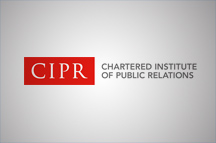The Chartered Institute of Public Relations (CIPR) met last week with Cabinet Office Spokesperson, Baroness Anderson of Stoke-on-Trent, and Labour Peer, Baroness Hayter, to discuss its ongoing campaign to reform Westminster’s lobbying laws.
The Institute’s campaign calls for new legislation to expand the current lobbying register, which at present only covers consultant lobbyists. The proposed reforms would ensure all lobbying activity is captured, bringing greater transparency to the relationship between business and government. The Institute believes that such transparency is essential to rebuilding trust in the UK’s political institutions and business community.
During the meeting, the Institute’s Chief Executive, Alastair McCapra and Head of PR and Policy, Jon Gerlis outlined the case for reform and proposed immediate steps to improve accountability beginning with extending the register to include lobbying of special advisers (SPADs) and senior civil servants beyond permanent secretaries, as is currently legislated.
The CIPR's No Rules Britannia? report found that Westminster is one of the few lobbying regimes worldwide that does not require the registration of SPADs, highlighting the urgent need for change.
The Institute has also written to the Public Administration and Constitutional Affairs Committee (PACAC) following its evidence session with former Registrar of Consultant Lobbyists, Harry Rich, setting out its position on issues raised by the Committee. Later this week, the Institute will meet with the newly appointed Registrar, Claire Bassett, to continue these discussions.
Alastair McCapra, CIPR Chief Executive said: "After many months of making the case for lobbying reform, we are encouraged by the positive engagement from both government and across Parliament. Baroness Hayter has been a strong supporter of this agenda and we welcome the opportunity to work constructively with Baroness Anderson on behalf of the Cabinet Office.
We understand the immediate challenges facing the government, but will continue to make that case that lobbying reform will deliver real benefits for businesses, parliamentarians, and the UK’s international reputation. While fixing our unfit-for-purpose lobbying laws remains our priority, there are also immediate, practical steps the government can take to demonstrate its commitment to higher standards starting with the inclusion of lobbying of SPADs.
The meeting was positive and we will continue to work with parliamentarians of all parties, across both Houses, to bring about meaningful change".












